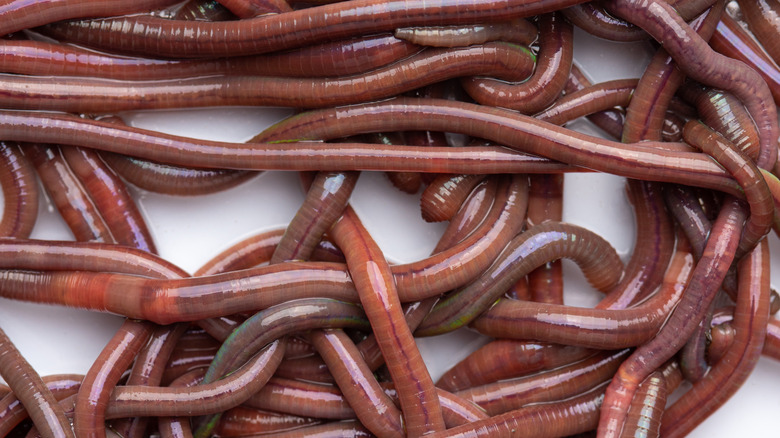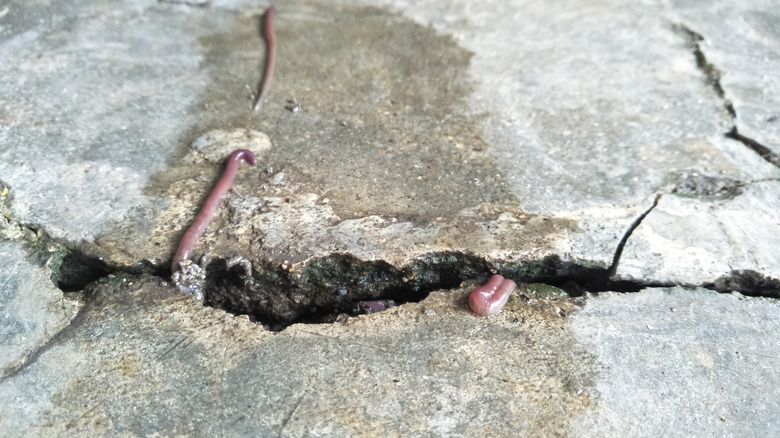House Worm Infestations: How Do They Get In?
After a good soaking rain, you may notice some uninvited guests in your house. If some of those are the creepy crawly kind, you may have an earthworm infestation. Worm infestations in homes are actually fairly rare because earthworms and similar invertebrate animals, by nature, need to live in the dirt. But sometimes, when conditions get unusually moist, earthworms may wriggle their way into your home.
Usually when this happens it's because the soil they live in became waterlogged and they surfaced in order to take in a little oxygen. It also can be because the dirt loosened up from the rain, allowing them to move more quickly than usual. No matter why or how they got there, you're probably not keen on letting them stay. They likely don't want to stay anyway. Earthworms have no eyes, ears, or noses and need to stay wet to survive. They would much rather get back to the filthy, loamy environs where they're safe, happy, and well fed. No matter how nice your home is, it's just not the Ritz-Carlton of wormdom.
How did these worms worm their way into my house?
It's likely that worms entered your home because they sensed moisture and humidity. These may have been temporary conditions, but it was enough to fool the worms. If your house is unusually damp, it's a good idea to think about installing a dehumidifier. Wet conditions can lead to mold or even rot, which is not only damaging to your home's structure, but could allow larger unwanted animal or insect guests in as well.
The worms probably entered your home through small gaps somewhere in your foundation or at below-ground level. Look for any obvious places of entry and seal them off immediately. Normally, you will see worms in crawl spaces or unfinished basements, which are dark, moist, and cool. Once there, they may find things like plant material, cardboard, or newspaper to feed on. Removing these types of materials will reduce the likelihood of future infestations. You'll also want to try to identify where the worms got in and seal up those gaps.
Give those worms an eviction notice
There are many ways to get rid of earthworms and keep your home critter-free. Fortunately, earthworms are harmless. They don't bite or spread disease, so removing them from your home is mainly to overcome the "ick" factor. Also, they may lay eggs while in your home and you certainly don't want to be the proud step-parent of a new worm family. If you do come across worms in your home, scrub the area completely with vinegar or a bleach product to make sure any eggs or baby worms, called hatchlings, are removed. If the worms were in a carpeted area, you'll need to do a full carpet shampoo to be sure no eggs or hatchlings are left behind. If the problem returns, it may be time to hire a pest control company to take a look.
Hopefully the earthworms you found are still alive. If so, there's no reason to harm them. Rather, toss them out into your yard or garden. Worms are experts at improving soil health by providing oxygen, drainage, and adding extremely high-nutrient waste. Another option is to toss the earthworms into your regular backyard compost bin or learn how to vermicompost to get even more benefits from these little wrigglers. Aristotle didn't call them the "intestines of the earth" for no good reason.


